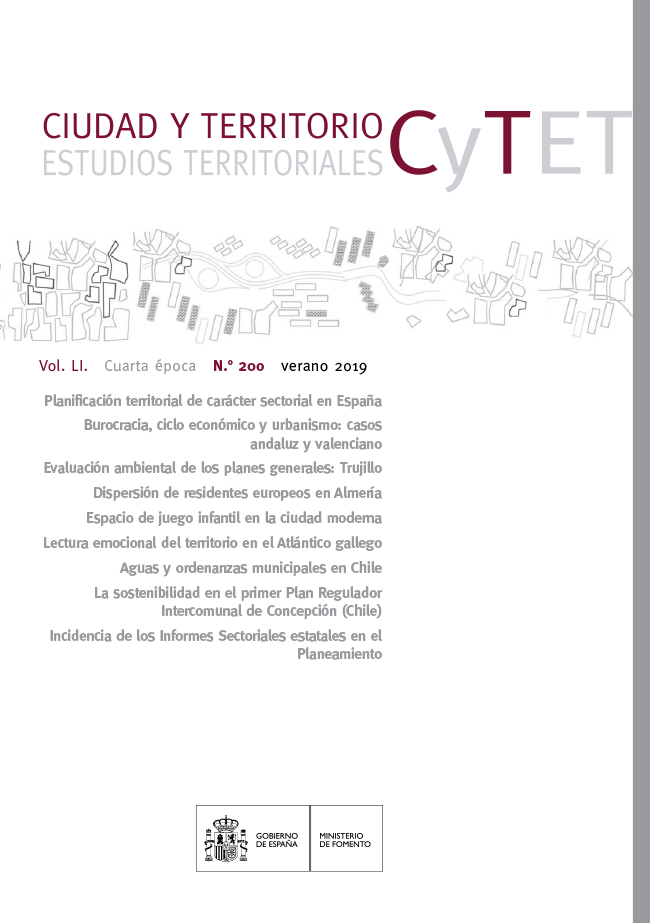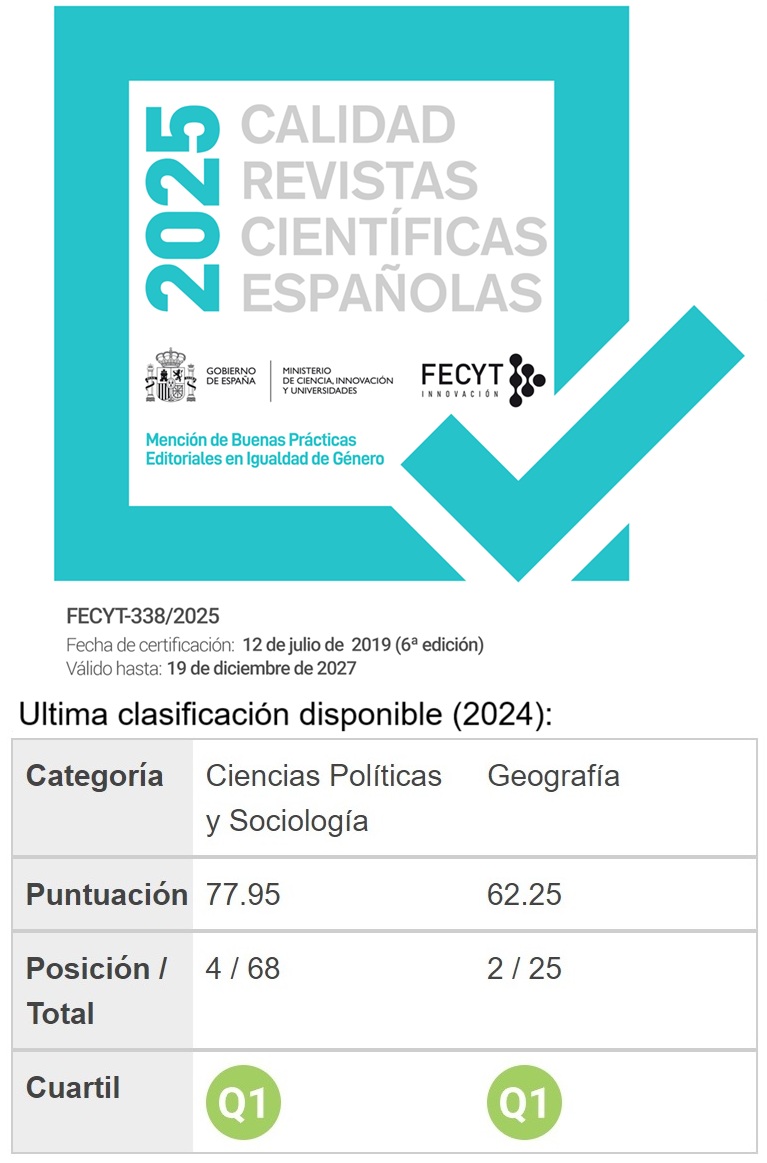Valoración histórica de tempranas medidas de sostenibilidad en el primer Plan Regulador Intercomunal de Concepción (Chile) 1963
Palabras clave:
Planificación regional y urbana, sostenibilidad territorial y urbana, Plan Regulador Intercomunal Concepción 1963, valoración históricaResumen
La relevancia de esta investigación se centra en dos componentes principales: el histórico, que ha permitido valorar la primera experiencia de planificación territorial y urbana, realizada por el Estado de Chile en su etapa madura (1950-1979), a nivel intercomunal en Concepción (1963), la segunda área metropolitana chilena después de la ciudad de Santiago y, el de sostenibilidad territorial y urbana, en el cual a partir de este estudio se ha podido relevar un conjunto de criterios de sostenibilidad para contribuir a las discusiones sobre una nueva planificación. La hipótesis de trabajo sostiene que las medidas tomadas por este proyecto metropolitano tuvieron gran visión de futuro dando cuenta de la aplicación temprana de varios criterios generales de lo que, desde los años 1980s se sistematiza como sostenibilidad. Así, la primera planificación de la metrópolis de Concepción fue adelantada a su tiempo, y en coherencia, por tanto, con su horizonte de tiempo de aplicación fijado en el año 1993. La metodología de investigación fue del tipo cualitativa, confrontando los criterios generales de sostenibilidad territorial y urbana, en diversos autores, con las medidas tomadas por el proyecto, capturadas desde las memorias, los planos y ordenanza del Plan Regulador Intercomunal de Concepción 1963.Descargas
Descargas
Publicado
Cómo citar
Número
Sección
Licencia
Derechos de autor 2019 Natalia Escudero-Peña

Esta obra está bajo una licencia internacional Creative Commons Atribución-NoComercial-SinDerivadas 4.0.
Sin perjuicio de lo dispuesto en la legislación vigente sobre Propiedad Intelectual, y conforme a la misma, el/la los/las autor/a/es/as que publiquen en CyTET cede/n a título gratuito, de modo no exclusivo y sin límite temporal al Ministerio de Transportes, Movilidad y Agenda Urbana los derechos para difundir, reproducir, comunicar y distribuir en cualquier formato actual o futuro, en papel o electrónico, la versión original o derivada de su obra bajo licencia de Creative Commons Reconocimiento-NoComercial-SinObraDerivada 4.0 Internacional (CC BY-NC-ND 4.0), así como para incluir o ceder a terceros la inclusión de su contenido en índices, repositorios y bases de datos nacionales e internacionales, con referencia y reconocimiento en todo caso de la autoría del mismo.
Además, al realizar el envío, el/la los/las autor/a/es/as declara/n que se trata de un trabajo original en el que se reconocen las fuentes que han sido utilizadas en su estudio, comprometiéndose a respetar la evidencia científica y a no modificar los datos originales para verificar o refutar una hipótesis de partida; que el contenido esencial del mismo no ha sido publicado previamente ni se publicará en ninguna otra obra o revista mientras esté en proceso de evaluación en la revista CyTET; y que no se ha remitido simultáneamente a otra publicación.
Los autores deben firmar un Formulario de Cesión de Derechos, que les será enviado desde la Secretaría de CyTET una vez se acepte su artículo para ser publicado.
Con el objetivo de favorecer la difusión del conocimiento, CyTET se adhiere al movimiento de revistas de Open Access (OA) y entrega la totalidad de sus contenidos a diversos índices, repositorios y bases de datos nacionales e internacionales bajo este protocolo; por tanto, la remisión de un trabajo para ser publicado en la revista presupone la aceptación explícita por parte del autor/a de este método de distribución.
Se anima a las/os autoras/es a reproducir y alojar sus trabajos publicados en CyTET en repositorios institucionales, páginas web, etc. con la intención de contribuir a la mejora de la transferencia del conocimiento y de la citación de dichos trabajos.








 Enlace a CyTET en Linkedin
Enlace a CyTET en Linkedin